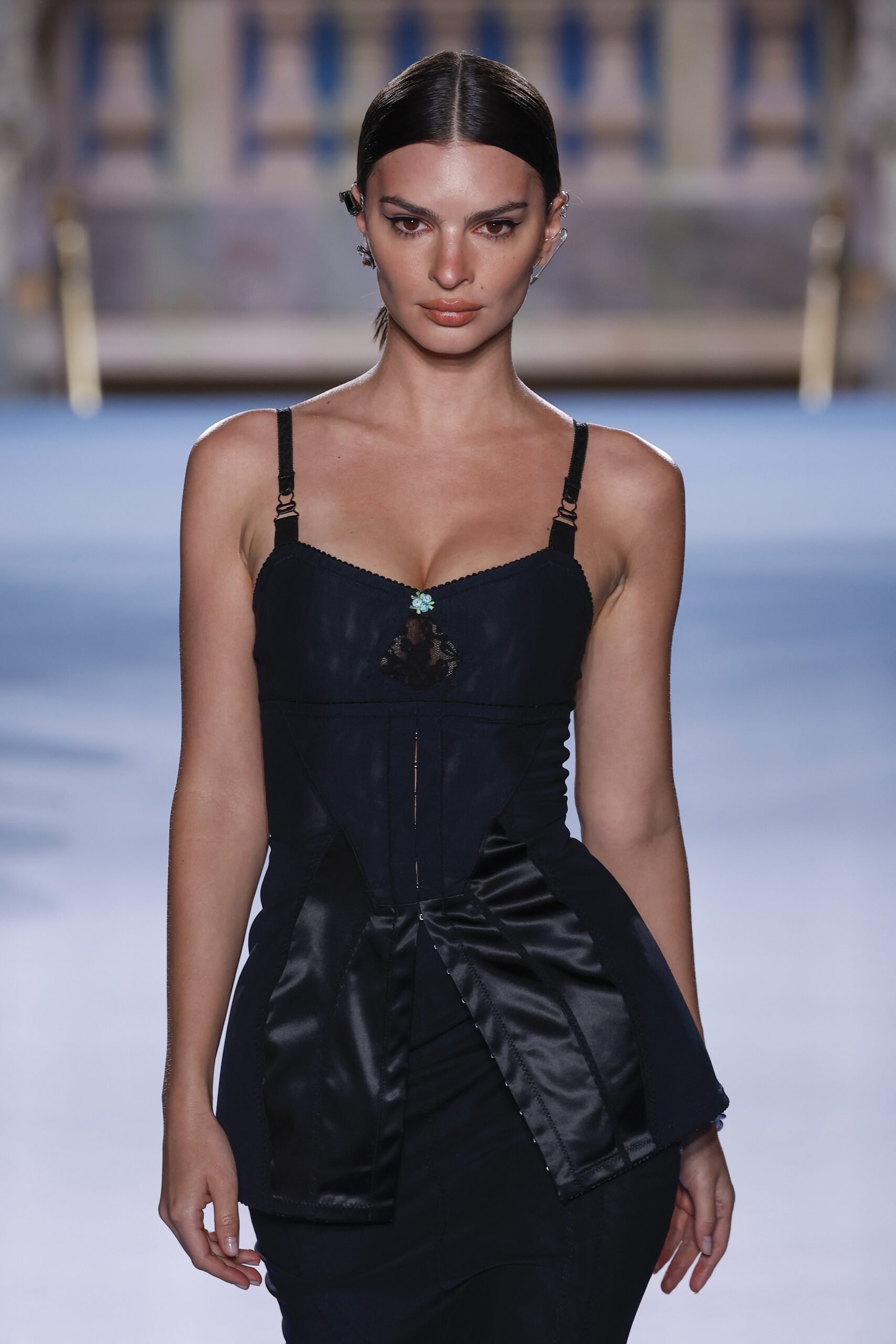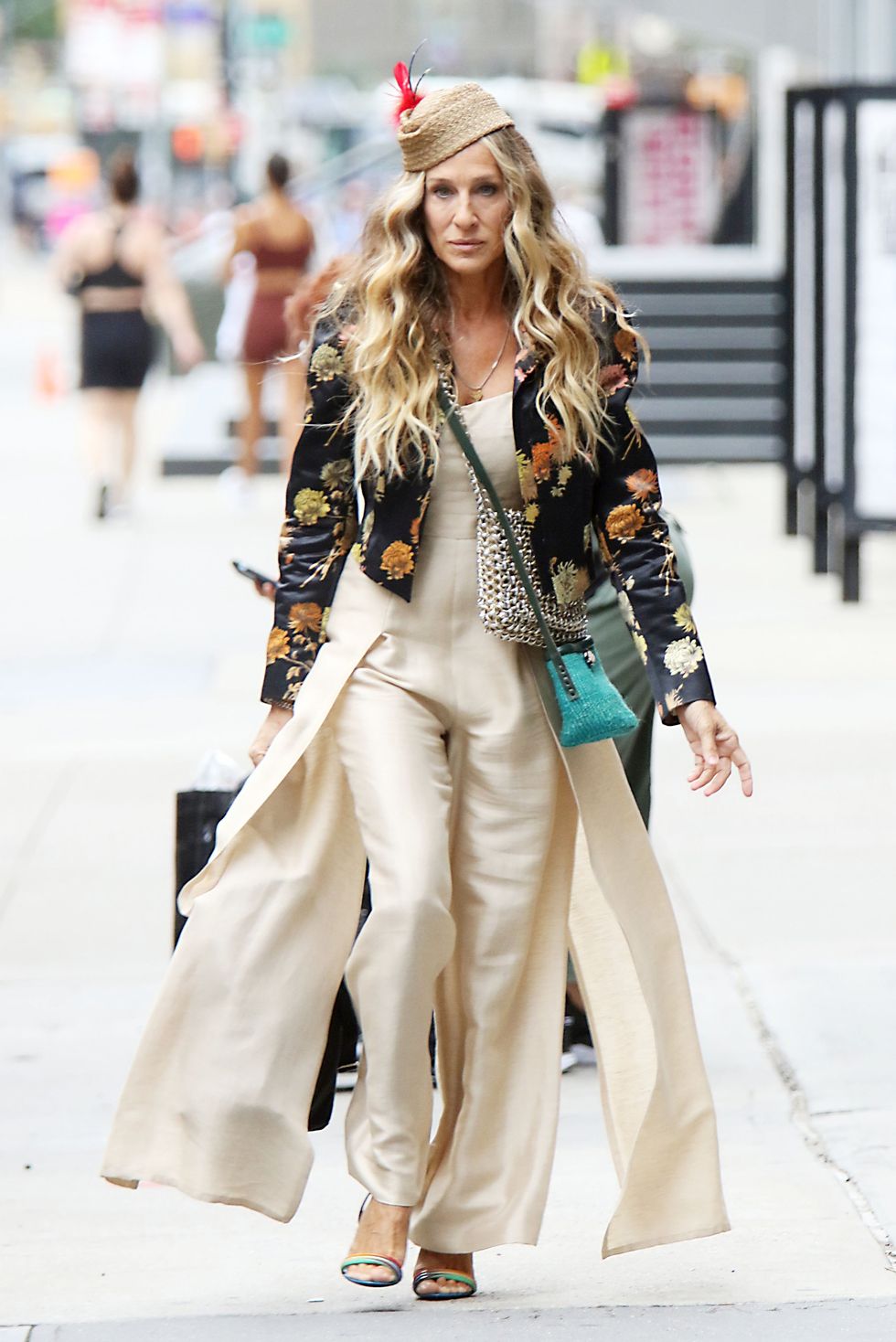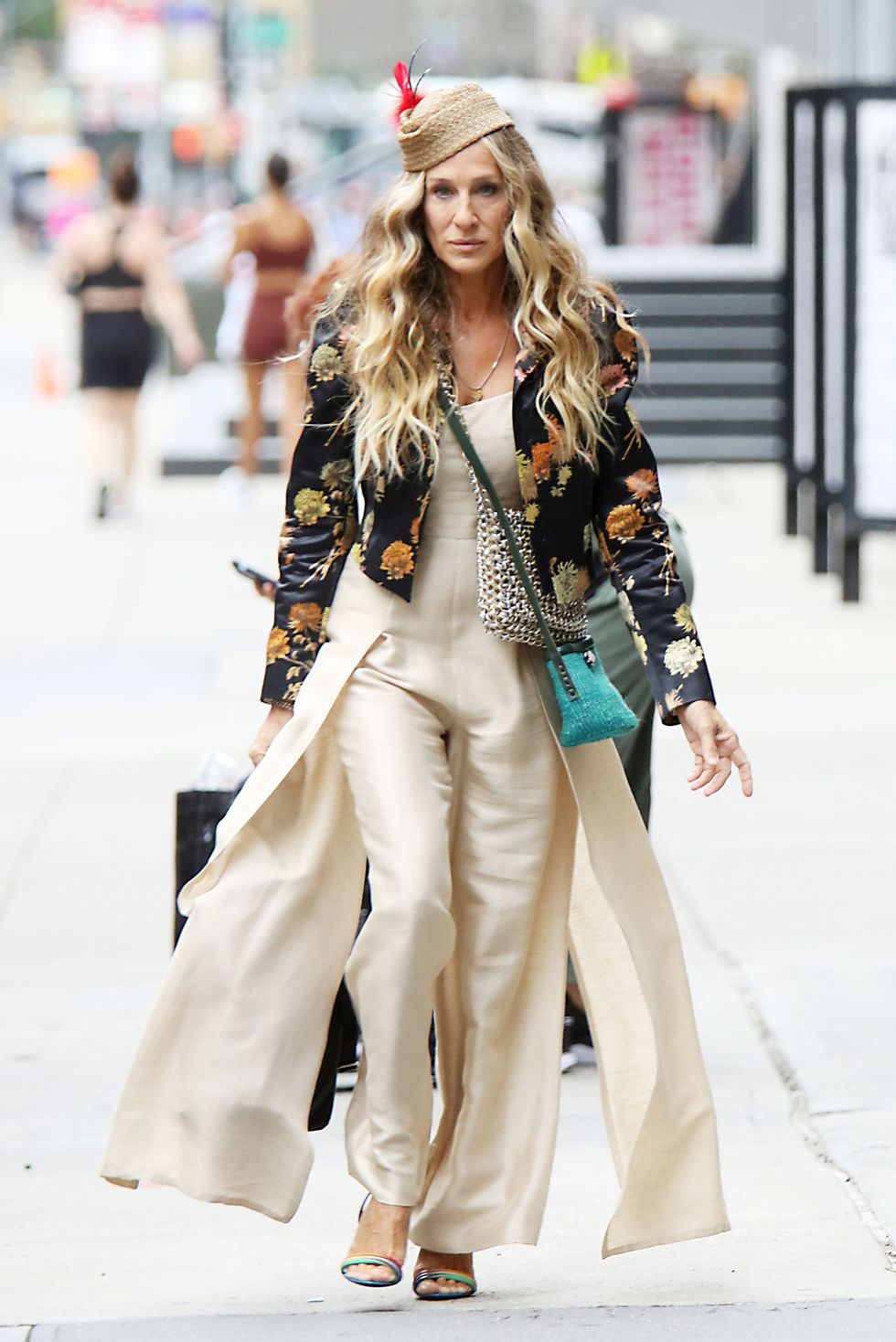
Shutterstock
As Carrie Bradshaw famously said, “Every year the women of New York leave the past behind and look forward to the future. This is known as FASHION WEEK.”
While any real New Yorker knows that Sex and The City is a rose-colored depiction of the cockroach-filled-hellhole we happily call home, surely the show at least nailed its representation of fashion week. After all, it’s a week devoted to all things shiny and inaccessible: beautiful people wearing beautiful clothes in elegant rooms with mysterious locations. Yeah, someone vomited on your Reeboks on the L train during your commute home to your 4th-floor walk up, but surely, despite all the things New York turned out not to be, it’s still this one thing: the home of high fashion and unimaginable glamor.
You scroll through your Instagram feed, living vicariously through shots of six-foot-tall, eyebrowless women wearing clothing-adjacent structures, strutting down runways that could just as easily be in a dark room in Billings, Montana. But it’s not about that. It’s about knowing that it’s here, here in this city of broken promises and overdraft credit cards, that something magical is happening. That’s fashion week.
The haute couture industry was built on this air of inaccessibility. A select few get to be seen in the latest trends, which is only made consequential by the envy of those excluded. Without that envy, there is no high fashion. For many, the fashion weeks of the world and the kind of life they represent have seemed like untouchable, sparkling beacons of high-class living that couldn’t possibly be affected by the daily life of your average American. After all, they’re the kind of events people like Kendall Jenner and Rihanna frequent. But, it turns out, even high fashion is beginning to feel the tides of change in this specific and volatile moment in history.
The founder of Decades and Fashion Director of H by Halston and H Halston, Cameron Silver, told Forbes about the current state of the world of couture: “NYFW and the fashion industry, in general, is in an existential crisis at present. The way younger generations consume in a shared economy is ultimately providing huge challenges and fashion shows no longer engage the same way with customers.” This is more than convincingly evident by the continued decrease of shows hitting the runway at the past couple of NYFW, as well as the average American’s dwindling interest in high-end clothes. According to government statistics, in 1977, 6.2 percent of U.S. household spending went to clothing, now, that number is down by more than half.
The truth is, fewer Americans than ever before are interested in high fashion. If your inner Carrie Bradshaw is screaming in despair at this news, well, tell her to shut up because her internalized misogyny is problematic, her looks were tacky and performative even then, and it’s time to introduce her to a new concept: sustainable fashion.
For the first time in the history of industrialization, consumers are starting to care where their products come from. Enter: organic and locally grown food, renewed emphasis on the craftsmanship of home goods, and sustainable, ethically-made clothing brands like Everlane and Outdoor Voices. The fashion industry is the second largest polluter in the world, and more and more human rights violations are coming to light from even some of the most well-known brands. Consequently, consumers are choosing more responsible options, like vintage shopping, ethical brands, and simply buying less.

Sarah Jessica Parker as Carrie Bradshaw
MediaPunch/Shutterstock
But to ascribe the death of high fashion merely to a rise in consumer ethics would be way too optimistic and straightforward. Perhaps even more influential than the corruption within the industry was the advent of e-commerce. Amazon and other online retailers are slowly but surely killing the traditional retail shopping experience that high end designers depend on. Shopping at Gucci is not merely about the clothing, it’s about being seen shopping at Gucci. It’s about the grandeur of the store itself. It’s about the attentive salespeople who make you feel valued. It’s about feeling like Carrie Bradshaw. High-end designers are selling self-importance to their consumers, and that doesn’t translate to online shopping.
Not only that, but e-commerce has taught consumers that fashion is about instant gratification. With a few clicks, you can have that sweater waiting for you on your doorstep in just three days. Looks at fashion week usually don’t go on sale to consumers for another 6 months, and while that used to be an accepted part of staying on trend, why wait when you can get something similar online?
What consumers need from their clothes is changing too. As more American workplaces go casual, there’s less need for the kinds of tailored suits or pencil skirts that have long been the bread and butter of designer fashion houses. Instead, people are choosing versatile, durable clothing that can be worn over and over, no matter the occasion. Which makes sense, as people are choosing to spend their money on experiences instead of material possessions. According to government statistics, experiences (travel, activities, eating out etc.) have grown to occupy 18% of the average American’s spending. After all, what’s the point of that new dress if the picture is taken in your bedroom because you can’t afford to go out? Wouldn’t it be better to post a picture wearing an older dress, but with the Mediterranean sea in the background? Most people think so.
This goes hand-in-hand with perhaps the most significant factor affecting the decline of the high-end clothing industry: brands are losing their place as status symbols. While it used to be that your opportunity to compare yourself to your peers mostly took place in person, with ample time to analyze and pick apart every aspect of your acquaintances’ outfits while you mingled, now, that comparison is happening online. When you post a picture of yourself on Instagram, it’s unlikely that any of your followers are going to be able to identify the specific brands you’re wearing, so as long as the outfit looks good and fills them with envy, why spring for a $400 black skirt when a $40 one will serve the same purpose?
Besides, is it really that enviable to have spent $400 on a skirt? As hipster culture takes root at every level of American society, even affluent millennials brag about their vintage thrift shop jeans. High fashion represents the newest thing, but the latest thing is being replaced by nostalgia for the old. This phenomenon is in part because many think fashion has finally hit a ceiling in which new innovations can only be variations on old innovations, and certain trends seem to be sticking around for good. As the New York Post points out, “Crucially, fashion hasn’t produced a must-have shift in dressing since the skinny jean in 2005.” Which means that there is a possibility that top you bought in the 90s is just as fashionable as anything you could go out and buy today. Why go shopping at all?
This new emphasis on vintage and used clothing could also be in part because as ideals of democratic socialism have begun to gain traction among the left, the once glorified careless spending of the country’s elite has started to look less appealing and more reckless and immoral to young Americans. While people still naturally aspire to wealth, they don’t look up to millionaires and billionaires as role models the way they once did, which has led people to turn to new sources of inspiration when it comes to their style. Fashion bloggers and YouTubers will happily tell you that they got their cute new bag at a garage sale and their shoes half price at TJ Maxx.
So yes, it appears high fashion, and NYFW along with it is dying. Even Tom Ford, one of the most famous designers in the world, has acknowledged the phenomenon, saying, “Most of the American population is switched off fashion, [it’s] become a spectator sport for the most part.” While the elite may see this as a tragic loss of culture, what it indicates is a movement towards an equal nation. We’re a long way away from entirely giving up the high value we place on material possessions, but the incremental demise of an industry run on lower-class envy, and the commodification of status is a step in the right direction. F*ck Carrie Bradshaw, wear what you want.

Sarah Jessica Parker as Carrie Bradshaw
MediaPunch/Shutterstock
- Christian Siriano talks Hershey’s and Holiday Fashion – Popdust ›
- The Week In Celebrity Fashion—The Best, Worst And Most … ›
- Trans-Model Responds to Victoria’s Secret’s Anti-Trans Comments … ›
- Something’s Rotten in the House of Drew: Justin Bieber’s Starting a … ›
- The Week in Celebrity Fashion: The Best, Worst & Most Ridiculously … ›
- The Week in Celebrity Fashion: The Best, Worst & Most Ridiculously … ›
- Mick Jagger To Resume Rolling Stones Tour Ten Weeks After ‘Lover … ›
- 20+ photos of Kate Middleton and Madonna’s fashion sense – Popdust ›
- Beyonce To Launch Clothing Line With Topshop Tycoon – Popdust ›
- Today’s street style and culture are reflective ›
- The Classist Hypocrisy of Rihanna’s New Luxury Clothing Line – Popdust ›
- Karl Lagerfeld Dies at 85; Prolific Designer Defined Luxury Fashion … ›
- Style is dead: why brunch has replaced fashion | Fashion | The … ›
- “It’s the end of fashion as we know it” says Li Edelkoort ›
- Fashion is dead and there’s no coming back ›
- Fashion brand co-founder Gilberto Benetton dies aged 77, just three … ›
- Kate Spade, Whose Handbags Carried Women Into Adulthood, Is … ›
- Karl Lagerfeld dead: Fashion icon and Chanel creative director dies … ›













